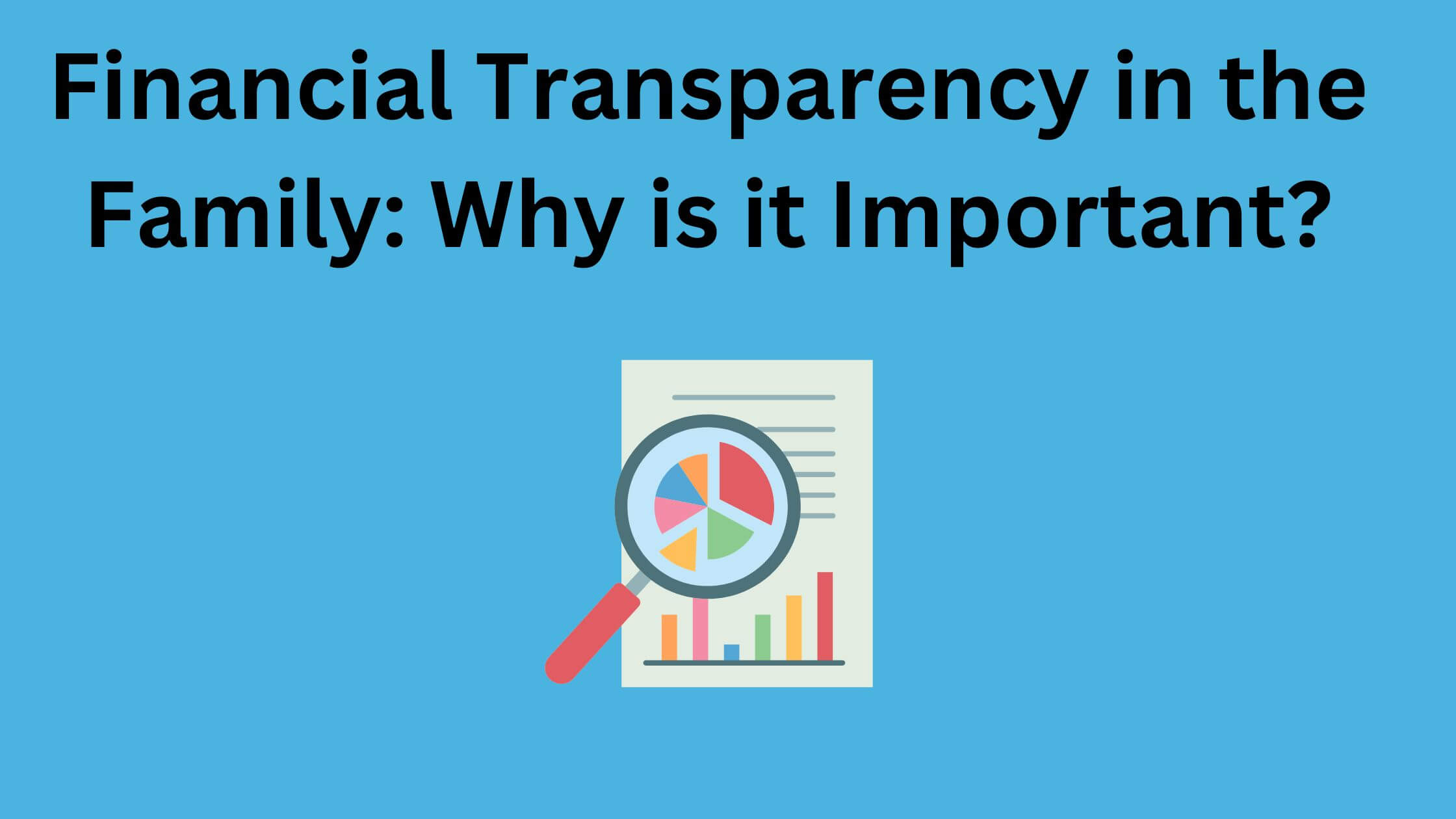Parenting is full of challenges, and teaching children valuable life lessons—like the importance of managing money—can prove to be pretty tricky. In today’s fast-paced, consumer-oriented world, the urge to buy, buy, buy is ever-present, which can lead children to start mindlessly spending their (or your) hard-earned money.
So, how do you instill in your child the value of a dollar and the importance of saving for a rainy day? As a parent, it’s important to equip your child with not only life skills but invaluable financial habits that will help them grow into financially responsible adults.
In the quest to help you achieve that, we have compiled a list of 14 things you can do to stop your child from wasting money and set them on the path to smart money management.
Why Should You Stop Your Kids from Wasting Money?
In the table below, I have presented some key reasons why you should work to stop your children from wasting money:
Benefits of Helping Children to Stop Wasting Money
| Benefit | Explanation |
|---|---|
| 1. Develops financial responsibility | Children learn to manage their money responsibly and avoid impulsive spending. |
| 2. Teaches budgeting | Children learn to plan and budget their money for different needs and wants. |
| 3. Encourages saving | Children learn to save their money for future needs or goals. |
| 4. Builds good credit | Children learn to use credit wisely and build a good credit history. |
| 5. Reduces debt | Children learn to avoid unnecessary debt and manage existing debt responsibly. |
| 6. Encourages entrepreneurship | Children learn to start their own business ventures and manage their finances. |
| 7. Develops critical thinking skills | Children learn to evaluate the value and necessity of spending decisions. |
| 8. Improves decision making | Children learn to make informed decisions about their money and avoid regretful purchases. |
| 9. Builds self-discipline | Children learn to control their impulses and make responsible financial choices. |
| 10. Promotes financial security | Children learn to build a foundation for financial stability and security in the future. |
| 11. Reduces stress | Children learn to avoid financial stress and anxiety by managing their money effectively. |
| 12. Improves relationships | Children learn to communicate effectively about money and avoid conflicts over finances. |
| 13. Promotes generosity | Children learn to share and give generously with their money, promoting a positive impact on society. |
What to Do to Stop Your Kid from Wasting Money?
1. Limit Gifts to Select Occasions
One efficient way to help children stop wasting money is to limit gifts to select occasions. It is essential to choose only the most important holidays and events for gift-giving and maintain a steadfast “no” to indulging your child’s desires for the rest of the year.
Retailers may try to entice you to shower your kids with gifts on holidays such as Valentine’s Day, Fourth of July, and Halloween, but staying steadfast in your gifting choices will help your child appreciate the value of gifts received on those select occasions. This method not only helps curb excessive gifting, but also teaches children to appreciate the gifts they receive on special dates.
Setting expectations with family members, too, can contribute to your child’s understanding of the value of gifts. By limiting gifts to specific occasions, you help your child develop a healthier and more responsible attitude towards spending and receiving items as they grow into adults. [1][2]
2. Have a Discussion about Wants vs. Needs
One effective strategy to help children stop wasting money is having a discussion about wants vs. needs. By engaging in conversations, parents can impart the critical distinction between these two terms. Needs are the essential requirements for living, such as food, shelter, basic clothing, healthcare, and education.
Wants, on the other hand, are considered luxury items or additional comforts that may not be necessary for survival, such as the latest gadgets, designer clothing, or trips to amusement parks.
Parents can initiate these discussions by asking their children to identify items in their home as either a want or a need. This exercise helps children become more aware of their spending habits and the personal motives driving their decisions.
When children understand the differences between wants and needs, they can prioritize their spending effectively and make better financial choices. This understanding also sets the stage for establishing saving goals, learning about budgeting, and teaching the importance of living within one’s means, all crucial skills in developing good money management habits. [3]
3. Discuss the importance of teaching financial responsibility to children
Teaching financial responsibility to your children is essential for their growth and development. As a parent, it’s your responsibility to empower them with the knowledge and habits they’ll need to manage their finances effectively in the future.
By focusing on financial education early, you’re setting them up for success and helping them avoid common pitfalls like debt and living paycheck to paycheck.
Financial responsibility is about more than just managing money; it’s also about understanding the value of hard work, delayed gratification, and wise decision-making with personal resources. When you invest time and effort in teaching your children these valuable lessons, you’re instilling in them a lifelong commitment to making responsible financial choices.
Moreover, children who understand the importance of financial responsibility are more likely to develop healthy savings habits, be conscious of their spending and avoid impulsive purchases. This, in turn, can lead to greater financial security and independence later in life.
So, make it a priority to discuss finances openly with your children and provide them with the tools and guidance they need to thrive in today’s complex financial world. [5][6]
4. Explain the reasons why children waste money
It’s not uncommon for children to waste money, and there are several reasons behind this behavior. One reason is the lack of understanding about the value of money. Since they are not the ones earning it, they may not appreciate its worth and how hard it is to acquire.
Also, children are often influenced by peer pressure and the desire to fit in with their friends, leading them to make impulsive purchases. The advertising industry targeting kids and promoting consumerism also plays a significant role in shaping their spending habits.
Furthermore, children may not have enough guidance and experience in managing their finances, leading them to make poor choices. They may also lack the skills to differentiate between wants and needs, which can result in overspending on non-essential items.
Finally, instant gratification has become the norm in today’s digital world, making it harder for children to develop patience and self-discipline when it comes to spending money. To help your child stop wasting money, it’s crucial to address these factors and provide the necessary guidance and education. [7][8]
5. Encourage setting saving goals for your child
Encouraging your child to set saving goals is a great way to teach them about the value of money and help them develop good financial habits.
Start by having a conversation with your little one about what they would like to save for – it could be a new toy, a trip to a theme park, or even their college education. Help them determine a realistic timeline for achieving their goal and break it down into smaller, more manageable milestones.
Next, assist them in creating a simple budget that outlines their income (i.e., allowance, birthday money, etc.) and any necessary expenses. This will enable them to visualize how much money they need to save every week or month in order to reach their goal. Make the process fun and interactive by using colorful charts or jars to track their progress.
Remember to celebrate small victories along the way and remind your child of the satisfaction they will feel once they’ve accomplished their goal. By doing this, you’re not only teaching your child to be responsible with their money but also giving them a sense of autonomy and achievement.
6. Teach your child the value of money and how to budget
Teaching your child the value of money and how to budget is essential for preventing them from wasting money. Start by explaining to them how money is earned through hard work and how it’s a limited resource. Help them understand the importance of using money wisely, not just for immediate wants but also for future needs.
Next, sit down with your child and explain the concept of budgeting. Teach them how to create a simple budget by dividing the money they receive or earn into categories like savings, spending, and long-term goals. Encourage them to track their spending regularly and compare it with their budget to make any necessary adjustments.
You can also involve your child in your own budgeting process by showing them how you allocate money for different expenses and how you make financial decisions. This will help them learn from your example and gain practical experience in managing money.
Remember, the key to instilling good financial habits in your child is to be consistent and patient, and in time, they’ll develop a strong understanding of the value of money and how to budget effectively.
7. Explain the consequences of wasting money
It’s crucial to explain the consequences of wasting money to your child, so they understand why spending responsibly is essential. Talk to them about how carelessly using up their resources can lead to running out of funds when they need it for something essential, like school supplies or unexpected expenses.
Help them visualize a situation where they have spent all their money, and then they face an emergency that requires funds. Point out that in such cases, they might have to borrow money or go without their needs. Explain how this can result in stress, a decrease in their quality of life, and potential long-term financial problems.
Discuss the concept of opportunity cost – how every dollar spent on a wasteful item could have been put towards something more meaningful or a long-term savings goal.
By understanding these consequences, your child will be more likely to make thoughtful spending decisions and develop a foundation for responsible money management.
8. Encourage your child to find ways to earn their own money
Encouraging your child to find ways to earn their own money is a great way to teach them financial responsibility and the value of hard work. By earning their own cash, they will have a better understanding of the effort it takes to obtain money and may be less inclined to spend it carelessly.
One way to help your child earn money is by offering them an allowance for completing chores around the house. This not only teaches them about money management but also instills a strong work ethic. You can also encourage them to take part in entrepreneurship endeavors such as setting up a lemonade stand or selling handmade crafts online.
As your child gets older, they can explore job opportunities in your neighborhood or community. Examples could include babysitting, yard work, or even getting a part-time job at a local business. Involvement in these activities will help them gain financial independence and understand the importance of making smart spending decisions.
Remember to offer guidance and support to your child in their money-earning efforts – this will prove invaluable in shaping their financial behaviors as they grow into adults.
9. Give your child an allowance and let them manage their own money
One of the best ways to teach your child about money management is to give them an allowance and let them control their own spending. By doing so, you’re providing them with the opportunity to learn valuable lessons firsthand, such as budgeting, decision-making, and dealing with the consequences of their choices.
Start by setting a reasonable allowance for your child, considering factors like their age, the costs of their daily needs, and any chores or responsibilities they may have. This allowance should be consistent and given at regular intervals, like weekly or monthly.
Encourage your child to create a budget, so they can track their income and expenses. It helps them understand the importance of allocating money for needs and wants, as well as setting aside savings for future goals. Remember to be patient and offer guidance as they learn to handle their finances – mistakes are often the best teachers.
By giving your child an allowance and allowing them to manage their own money, you’re empowering them to develop responsible financial habits that will serve them well throughout their life.
10. Teach your child about the power of delayed gratification
Teaching your child about the power of delayed gratification can be a crucial lesson in helping them develop wise money habits. It’s all about learning to resist the urge to make impulsive purchases and understanding the benefits of waiting and saving up for something they genuinely want or need. Start by introducing the concept to your child in simple terms, such as explaining how waiting for a treat can make it even sweeter.
Next, help them apply this principle in real-life situations. For instance, if your child has their eyes set on a new toy, encourage them to save their allowance or money received from birthdays and holidays instead of buying it immediately. Discuss the advantages they’ll gain by waiting, such as being able to afford a better, higher-quality item or having funds for potential future needs.
Additionally, you can use personal anecdotes or stories from your own life to illustrate the value of delayed gratification. Support these lessons by praising your child when they demonstrate patience and self-control in their spending decisions. Ultimately, mastering delayed gratification will be invaluable to your child when it comes to making responsible financial choices in the future.
11. Encourage your child to differentiate between needs and wants
One of the most valuable lessons you can teach your child when it comes to managing money is understanding the difference between needs and wants. Having a clear grasp of this concept can help your child make wise spending decisions in the future.
Start by explaining that needs are essentials, like food, clothing, and shelter, while wants are things that can make life more enjoyable but aren’t absolutely necessary, like toys, fancy gadgets, or eating out at restaurants.
You can make this lesson more relatable by using everyday examples. For instance, when grocery shopping with your child, point out the difference between the need for bread and the want for cookies. Similarly, when buying clothes, discuss the need for a warm coat in winter and the want for a trendy pair of jeans.
Engaging in such conversations regularly will encourage your child to pause and think before making purchases, helping them develop a financially responsible mindset. So, start teaching them the difference between needs and wants today and set them on the path to money management success.
12. Teach your child about the importance of comparison shopping
Teaching your child about the importance of comparison shopping is a valuable lesson that can help them save money and make smarter financial decisions.
Start by explaining the concept of comparing prices and features of similar products or services before making a purchase. This allows them to determine which option offers the best value for their money.
To practice comparison shopping with your child, involve them in your own shopping experiences. Show them how to read price tags, compare product features, and consider the overall value of a purchase. You can also use online shopping tools to demonstrate how to read reviews and search for deals or discounts.
Encourage your child to develop the habit of comparison shopping by allowing them to make some small purchases with their own money. Guide them through the process and celebrate their smart decisions.
Remind them that even though cheaper options might seem like a great deal, it’s essential to consider factors such as quality, durability, and ultimate value for money. In time, your child will learn to appreciate the benefits of comparison shopping and how it can help them make the most of their hard-earned money.
13. Set a good example by being financially responsible yourself
One of the most effective ways to teach your child about money management is by setting a good example yourself. Children often learn by observing, and when they see you being financially responsible, they’re more likely to follow your lead.
Start by being open about your budgeting process and sharing ways you save money. For example, demonstrate how you compare prices, clip coupons or watch for sales, and opt for cost-effective alternatives when shopping.
Also, let them see you pay bills on time and contribute to your retirement or emergency fund. It’s essential, to be honest about your financial successes and setbacks. If you’ve made mistakes in the past, share those experiences with your child and explain how you’ve learned from them.
By embodying healthy financial habits and setting a positive example, you pave the way for your child to develop responsible money management skills, creating a foundation for their financial success in the future.
14. Monitor your child’s spending and provide guidance as needed
As a parent, it’s essential to take an active role in monitoring your child’s spending habits. Not only will this help you identify any areas where they might be wasting money, but it also allows you to provide valuable guidance and support as they learn how to manage their finances.
Start by having regular check-ins with your child to discuss their spending patterns. This can include going over their bank or debit card statement together, reviewing their allowance amount and how it is spent, or simply discussing any recent purchases they’ve made.
During these conversations, offer constructive feedback and suggestions on how they can make better spending decisions in the future. Encourage them to think critically about their choices and remind them of their savings goals. Remember, it’s important not to criticize or shame them for their mistakes – instead, use these opportunities as teachable moments to help your child grow and improve.
By actively monitoring and guiding your child’s spending, you’ll not only help them develop healthy money habits, but also equip them with the confidence and skills they need to become responsible and financially savvy adults. So go ahead and take the time to engage with your child on this important aspect of their life – they’ll thank you for it in the long run.
Conclusion
There are many ways to help your child stop wasting money and become financially responsible. By setting a good example, teaching them about budgeting and saving, and encouraging them to think before they spend, you can help your child develop good money habits that will serve them well throughout their life. It is important to start early and consistently reinforce these habits. With patience, guidance, and a little bit of effort, you can help your child become a financially savvy and responsible adult.
















